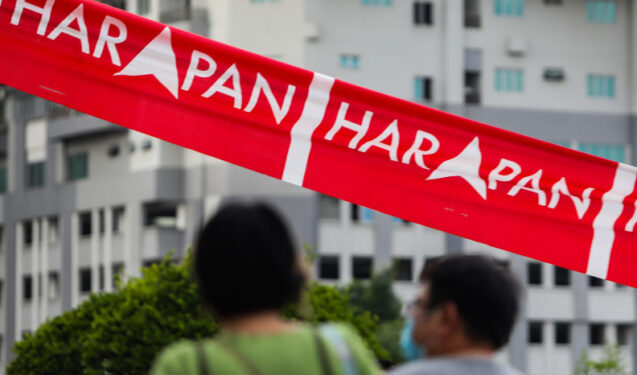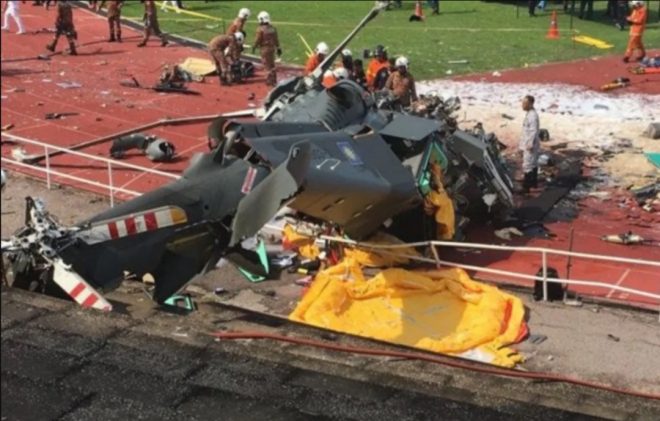THE landscape of international security has changed dramatically since Sept 11 attack in the US, exactly 20 years ago. Terrorism and terror acts are not limited to a single country or region. Terrorism is now becoming a global crisis. It has grown from the north to the south and from west to the east.
After al-Qaeda was vanquished, Islamic State (ISIS) went on to commit more atrocities around the world. This organisation, likewise, had been defeated a few years ago.
The emergence of the Taliban in Afghanistan is likely to have invigorated UK terrorists, according to UK MI5 Director General Ken McCallum, who indicated yesterday that it might be a morale boost for them.
According to mi5.gov.uk, MI5 stands for Military Intelligence, Section Five, the British Government’s counterintelligence, and its duty is outlined under the Security Service Act 1989, which is to preserve national security, notably against threats such as terrorism and espionage.
Furthermore, he added that terrorists can regroup and devise well-developed and sophisticated plots, noting that in the UK, 31 terror plots including religious and right-wing terrorists, had been foiled in the last four years.
He added that ISIS had succeeded in doing something that al-Qaeda had failed to do: Inciting a large number of people to commit small-scale acts of terrorism. He stops short of describing a lone wolf terrorist attack like the one that occurred recently in Auckland, New Zealand, as such.
Taliban’s rise may have opened the Pandora box for other terrorist groups to strategise by utilising Afghanistan as a launching pad for attacks on other nations, by revisiting 9/11 and affect future security paradigm.
Afghanistan and the rest of the world
New terrorist organisations linked to al-Qaeda or ISIS have emerged in the Indian subcontinent and Afghanistan, including al-Qaeda’s offshoot such as (AQIS), Jamaatul Ahrar, Hizbul Ahrar, Haqqani Network, Lashkar-e-Taiba and ISIS Khorasan Province (ISIS-K).
Of all the Islamic militant groups in Afghanistan, ISIS-K (a branch of the multinational ISIS network) is the most radical and violent. It staged a horrific strike near the Kabul international airport a few weeks ago, killing over 170 people, including 13 US soldiers.
ISIS-K considers Taliban members to be apostates. The current Taliban administration faces a severe security danger from this group.
The Haqqani network, which is closely linked to the Taliban, is another of the world’s most wanted terrorist organisations. This group is one of Afghanistan’s most experienced and sophisticated insurgent organisations, according to The Institute for the Study of War.
The current leader of the Haqqani network is Siraj Haqqani, the son of the famed anti-Soviet militant Jalaluddin Haqqani. Siraj is more radical than his father, with ties to al-Qaeda and other foreign extremists in Pakistan. Across Afghanistan’s southeastern border of Pakistan, the Haqqani network maintains a safe haven in North Waziristan.
A few days ago, the Taliban announced the formation of an interim Government in Afghanistan, led by some of the most wanted figures globally. Mullah Mohammad Hassan Akhund, a Taliban founder who is in the United Nation’s blacklist, is the leader of this Government. The FBI-wanted commander of the Haqqani insurgent group, Sirajuddin Haqqani, is now serving as the new acting interior minister.
These appointments have bolstered belief that Afghanistan is reverting to its pre-2001 state, when it was regarded as a haven for foreign terrorist organisations such as al-Qaeda to train their members and plot future terrorist attacks.
According to The Times newspaper in the UK, two Malaysians are accused of being involved in the Kabul bombings by ISIS-K. This is just another sign that foreign terrorist fighters (FTFs) are resuming their efforts to re-establish their ostensibly lost Caliphate.
Meanwhile, Rohullah Saleh, the brother of former Afghan Vice President Amrullah Saleh, was tortured and executed by Taliban yesterday while escaping Panjshir, according to republicworld.com. In the Panjshir Valley, the Northern Resistance Front (NRF) and the Taliban are fighting a bloody battle.
The NRF’s leader, Ahmad Massoud, urged the world community not to recognise Taliban’s administration since it has killed innocent people, and the NRF claims to control 60% of Panjshir.
This is one another indicator that the Taliban and NRF troops will continue to fight in a “civil” war. The present Taliban-led administration has yet to be recognised by foreign powers, including the US and the UK.
A report released last Thursday by the United Nations Development Programme (UNDP) noted that nearly 97% of Afghans may fall into poverty unless the country’s political and economic problems are addressed. This means that Afghanistan is moving into a “grey area” phase, in which the country will become unstable, allowing international terrorist groups to use Afghanistan as a base in the near future.
Meanwhile, other foreign terrorist organisations (FTO) recognised as terrorist groups by the US Secretary of State under section 219 of the Immigration and Nationality Act (INA). ISIS-Philippines, ISIS-West Africa, ISIS-Greater Sahara, al-Ashtar Brigades (AAB), Jama’at Nusrat al-Islam wal-Muslimin (JNIM), Islamic Revolutionary Guard Corps (IRGC), Asa’ib Ahl al-Haq (AAH), Harakat Sawa’d Misr (HASM), ISIS-DRC, and ISIS-Mozambique.
The resurrection of al-Qaeda and ISIS, as well as their affiliates, is alarming. Despite the fact that security and intelligence agencies were successful in assassinating leaders of these organisations, they were unable to eliminate their underlying ideology.
This crude ideology has been adopted by sympathisers and followers of many terror organisations, with the majority of them functioning as lone wolves to fulfil their “noble” goal of murdering innocent people, like in the attack in Auckland.
Terrorist groups are resurfacing due to their ideology’s tenacity. As a result, lone wolf terrorist attacks become more visible. This form of attack becomes extremely difficult to detect and may sometimes evade intelligence and security agencies’ surveillance.
In a nutshell, the world has become more perilous as a result of the rise of the Taliban, who now have a place to accommodate their “noble” deeds together with their ‘allies’. – Sept 11, 2021
R Paneir Selvam is a senior lecturer at the Faculty of Business, Economic and Accounting/Institute of Crime and Criminology, HELP University.
The views expressed are solely of the author and do not necessarily reflect those of Focus Malaysia.










